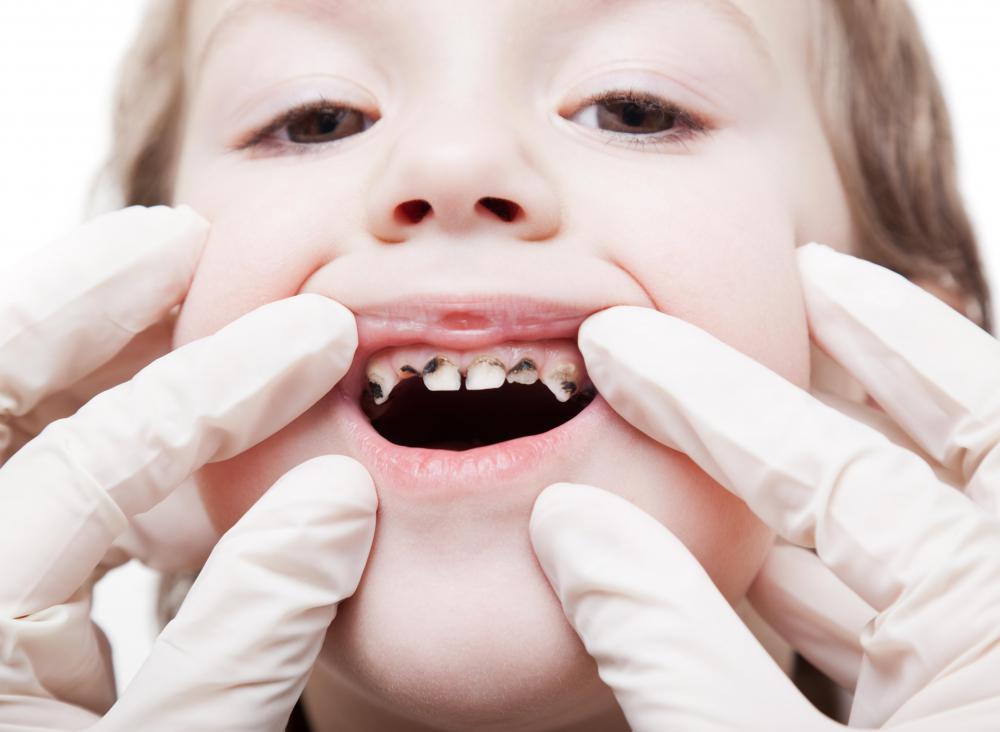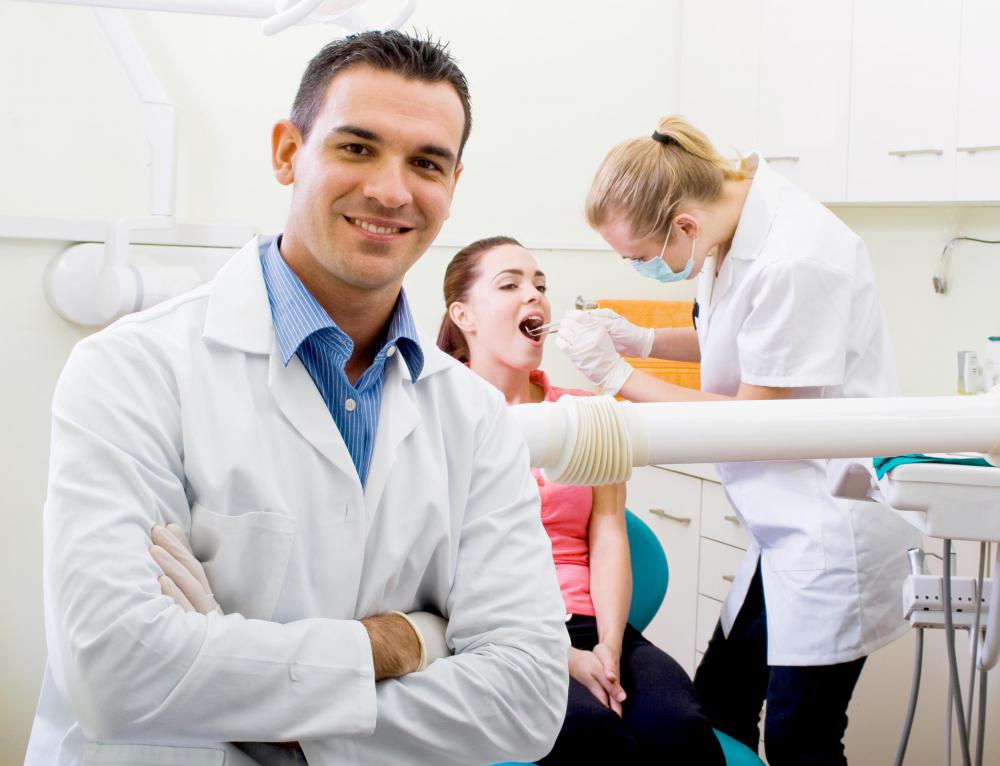At TheHealthBoard, we're committed to delivering accurate, trustworthy information. Our expert-authored content is rigorously fact-checked and sourced from credible authorities. Discover how we uphold the highest standards in providing you with reliable knowledge.
What is a Crossbite?
Crossbite is a term used in dentistry to describe a condition in which an individual's teeth are misaligned. Specifically, it refers to conditions in which one or more teeth are positioned closer to the cheeks than the corresponding teeth in the upper or lower part of the mouth. A crossbite may also be referred to as a malocclusion of teeth. Minor cases of tooth misalignment are very common; few people have truly perfect teeth. In some cases, however, it is necessary to treat tooth misalignment, such as with braces or retainers, in order to prevent discomfort, pain, or difficulties in speech or in eating.
A crossbite is most likely to be identified during routine checkups at the dentist's office during one's youth. In general, tooth alignment issues are hereditary and easy to identify from an early age. There are several possible non-hereditary causes of crossbite, though. Some individuals have damaged or impacted teeth that can affect the alignment of one's bite. In other cases, dental treatment devices such as braces, crowns, or retainers are applied improperly, resulting in misaligned teeth.

When a crossbite is not identified during routine dentist's appointments, there are several symptoms that suggest the presence of a tooth alignment issue. In many cases, one may actually be able to see the misalignment simply be examining one's teeth in the mirror. Discomfort or pain while biting down, especially while eating, can also be indicative of a crossbite. In particularly severe cases, abnormal facial appearance or difficulties in proper speech can also indicate the presence of a tooth misalignment.

Those who require treatment for a tooth misalignment generally seek help from an orthodontist. Braces, retainers, or other dental appliances are commonly used to shift one's teeth into a better position. In severe cases, oral surgery may be necessary to repair serious misalignment of the jaw. A crossbite may not cause any immediate pain, but it can cause later problems such as tooth decay because the altered structure of the teeth may make proper dental hygiene difficult. Crossbites can also put significant strain on the joints that compose the mouth and jaw.

It is generally ideal to correct any tooth alignment issue, including crossbite, when one is young. Children have softer bones and their teeth are more mobile, so they can be shifted into better positions with relative ease. Treatment often lasts for less than two years; sometimes, it can actually be as short as six months. Treatment of tooth misalignment in adults is possible and is generally successful, but it tends to take much longer.
AS FEATURED ON:
AS FEATURED ON:

















Discuss this Article
Post your comments